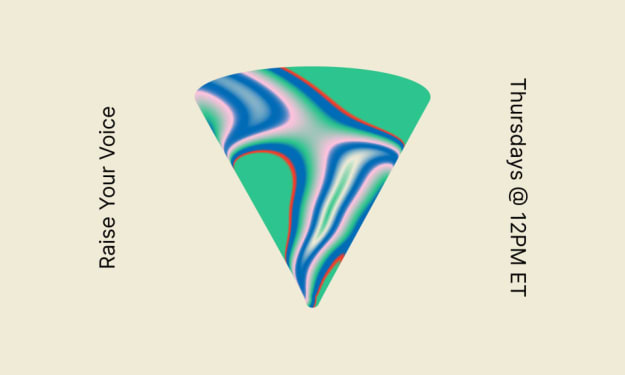The Medical Model Has Created a Revolving Door Effect for Mental Health Services - Here's How Lived Experience Peers are Changing That
How Peer and Lived Experience Volunteers and Professionals are Reshaping the Care We Receive for our Mental Health

It's not uncommon to hear from friends, loved ones and community how alienating and frustrating it can be when trying to access mental health services in Australia. Even prior to Covid-19, the mental health system was struggling to provide access to relevant and timely services to vulnerable people seeking help.
But, during those time there have been some really interesting statistics arise. Where I am in Western Australia, we have been incredibly privileged to not yet cop the brunt of the pandemic. Compared to the rest of Australia, we have had relatively low cases, deaths and economic impact. During lockdowns in Western Australia, we briefly saw a decrease in successful suicides and suicide attempts. Before we were all entirely jaded and emotionally fatigued from living with and waiting for an invisible enemy to strike at any moment - we embraced being able to slow down. For most of us, it meant an opportunity to slow down, work from home, spend more times with our families or loved ones and reconnect with our communities while zoom calls and phone calls became a novelty to check in with those we couldn't see face to face.
How and why is this connected to our mental health? Well, Do you know what a peer worker is? Let me explain.
A peer or lived experience professional is someone who has lived experience of navigating mental health challenges, alcohol and other drug challenges, grief, homelessness and almost any and all psych-social stressors. Some volunteer, some go through the process of obtaining accredited education - all have one thing in common : lived experience and recovery.
The Medical Model is an efficient model in best practice, it is under staffed, under resourced and always busy. People who are presenting to emergency departments in crisis, will rarely receive the support they need and if they do - that support looks like a mental health until admission or risk containment. There is no doubt that risk containment and admissions for acute and complex mental health challenges can be helpful for the short term, but what about peoples long term supports?
I have lived experience, and I also work in a role where I am paid to utilize my lived experience. I have been that person who has presented to emergency in crisis, and made attempts and has been in mental health units for longer admissions. I was never offered any long term support in my discharge apart from the advise of "go see your GP". I can understand how exhausting it is, never feeling like you're really getting anywhere.
People often re present to hospital in crisis, at risk just to go through that whole process again. In recent years, developments are being made in how the Australian mental health systems works and operate. Most larger hospitals now have Mental Health Observation Area or Mental Health Emergency Centres where people can stay for usually 3-4 days for risk containment, diagnostic clarification, medication reviews and respite. This is a step in the right direction in terms of brief interventions that don't result in people being institutionalized over time from longer admissions in mental health units. These units act as a low grade psychological and psychiatric intervention and allow for people to be connected to services and supports. These shorter admissions do not derail a persons entire life, routine or career and can be considered a circuit breaker for dependence.
This is where peer workers come in. There are programs that exist and are becoming more common that connect vulnerable people with professionals who have gone through recovery or have made changes to live their best lives.
You wouldn't buy a brand new car from someone who couldn't drive, well you could but they probably don't appreciate how the car drives, the design and the quirks of it. So, how do you feel about taking mental health advice from someone who's never had a mental health challenge?
Sometimes it feels like they don't understand the challenge at all, that to them recovery is linear and you just need to complete a checklist of tasks and you're magically better. God forbid you go backwards or side step, because then you're just wasting their time - sarcasm-
It feels cathartic to be able to connect to someone who has been down a similar path and understands the challenge. It is affirming and plants the seed of hope to be able to engage with someone you know has experienced this for themself or supported a loved one through a challenge. The beauty of it though, is that this person isn't a mentor or a sponsor or someone who is above you or better than you because they've done it. They walk alongside you, we don't drag and we don't leave behind - but we will meet you where you are and then walk alongside you wherever you are going.
Peer programs in hospitals are bringing back some impressive data as well, repeat presentations are reduced by 35% compared to someone without post-discharge support from a non-peer service.
The point of difference between other services and services who utilize peer and lived experience is that clients who work with peers find meaning in their recovery and goals, they see hope in working alongside someone who knows what it's like, recovery is now something tangible they can see in action. It builds capacity in clients and by utilizing person centered and trauma informed approaches - we build resilience, autonomy and self advocacy skills in our peers. It empowers people to navigate and identify what they need to stay well and out of hospital and builds to confidence and agency that allows people to claim their right to know what is best for them instead of relying on a figure of authority to decide for them what is the best care.
About the Creator
Alex Thomas
Lived experience Mental Health Worker. Writing and sharing my experiences as a form of peer support work to the greater community. Dismantling stigma through education and conversations about mental health and mental illness.






Comments
There are no comments for this story
Be the first to respond and start the conversation.